Question Your World: Is Climate Change Impacting Dating?
Ah yes, Valentine’s Day is approaching. That means we get a chance to look at modern romance through the lens of science! Since Valentine’s day is often considered a hot and steamy holiday, we figured we’d dig into the hottest overlap in science these days: dating and climate change.
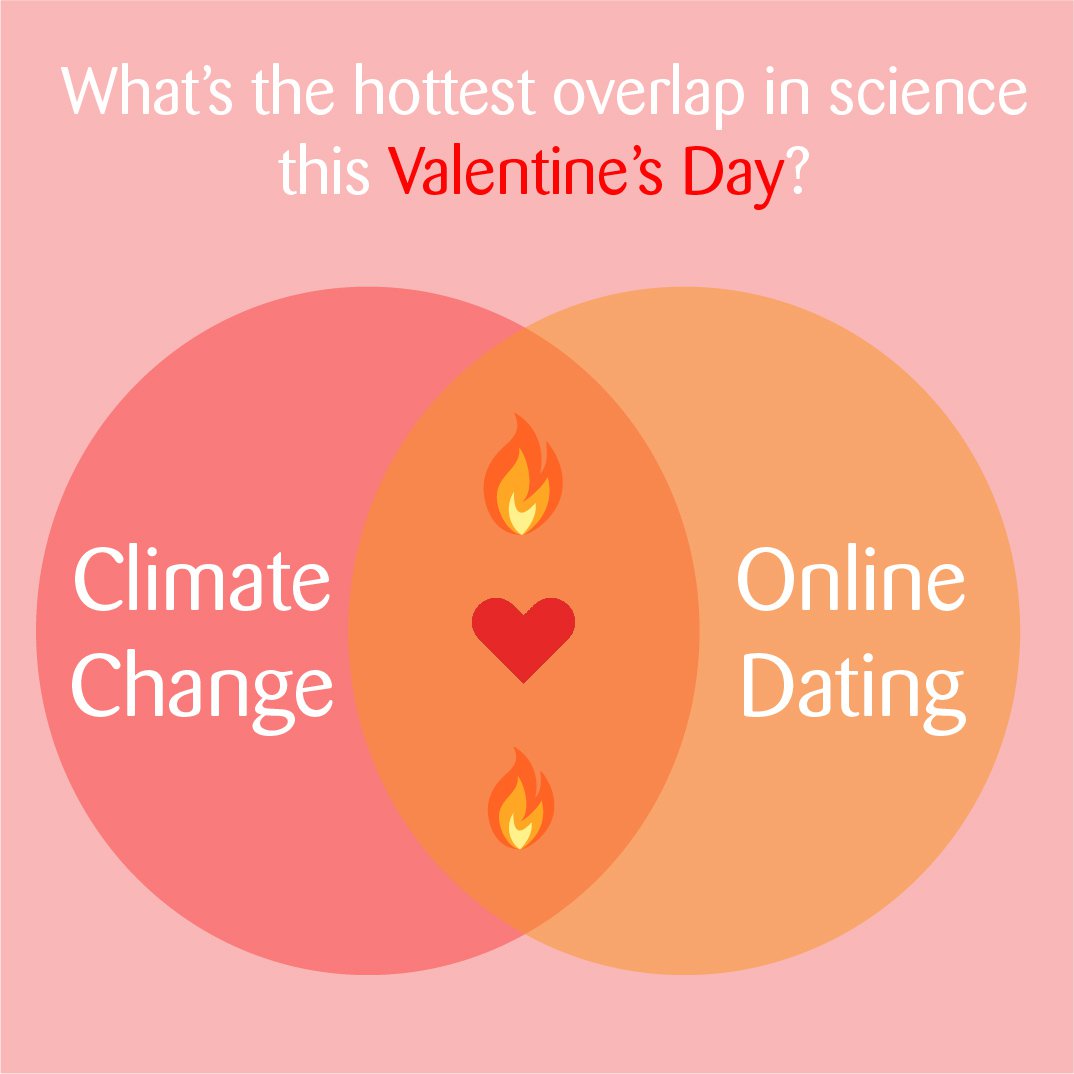
Climate change has certainly been in the news a lot. These large changes in climate patterns are starting to impact a lot of aspects of life on Earth, like global temperature rise, where our trees grow, it's even impacting chocolate! From small to large changes, humanity is aware that this is definitely a big topic that we'll collectively be concerned with for some time to come.
As the entire planet begins to act on climate change, we're starting to see it appear in dating apps as well. After all, what better things to look for in a mate than a common sense of purpose and concern for the future? A recently published article on climate change and dating apps looked into the numbers behind this hot and heavy overlap. They looked at OkCupid, specifically, but many other dating apps also report a rise in climate change mentions. So, let's dig into this by looking at how many folks are single, how many folks are using dating apps, and who's getting flirty and chatty about climate change?
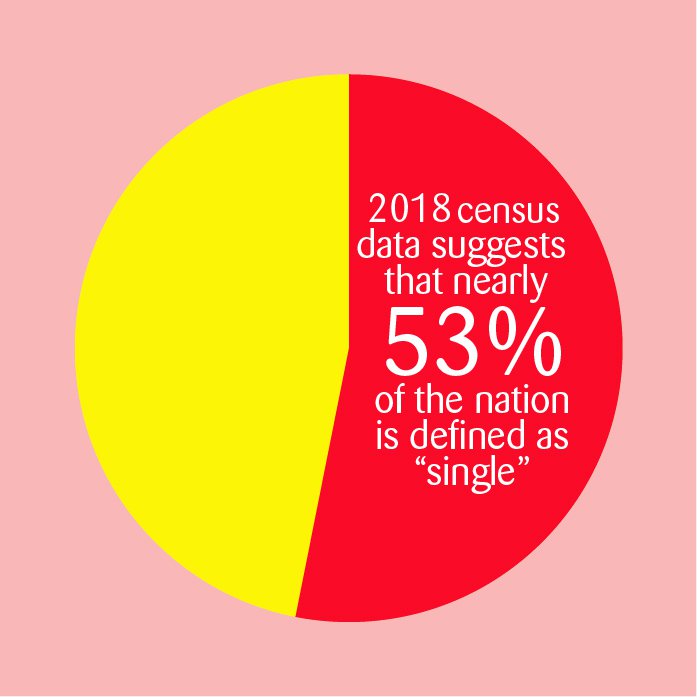
2018 census data suggests that 39% of Americans over 18 have never been married and nearly 53% are by many definitions "single." Look, we’re very happy for the rest of you, but this piece goes out to all the single ladies and gents out there hoping to swipe right on love this Valentine's Day.
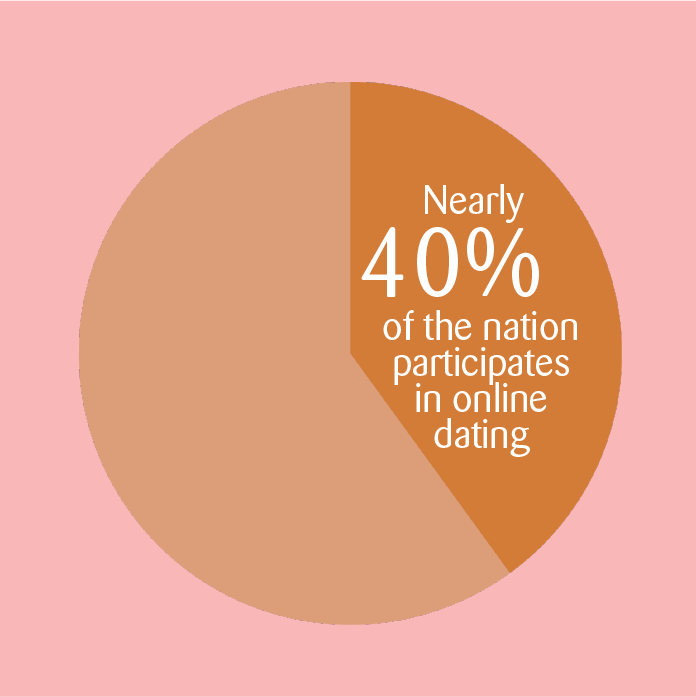
Online dating platforms launch all the time so it’s no wonder that 40% of Americans are now using some kind of online dating. On their online dating profiles, people get to put in their desired qualities in a mate. Guess what has become a commonly used qualifier for these singles pining for romance? Climate change.
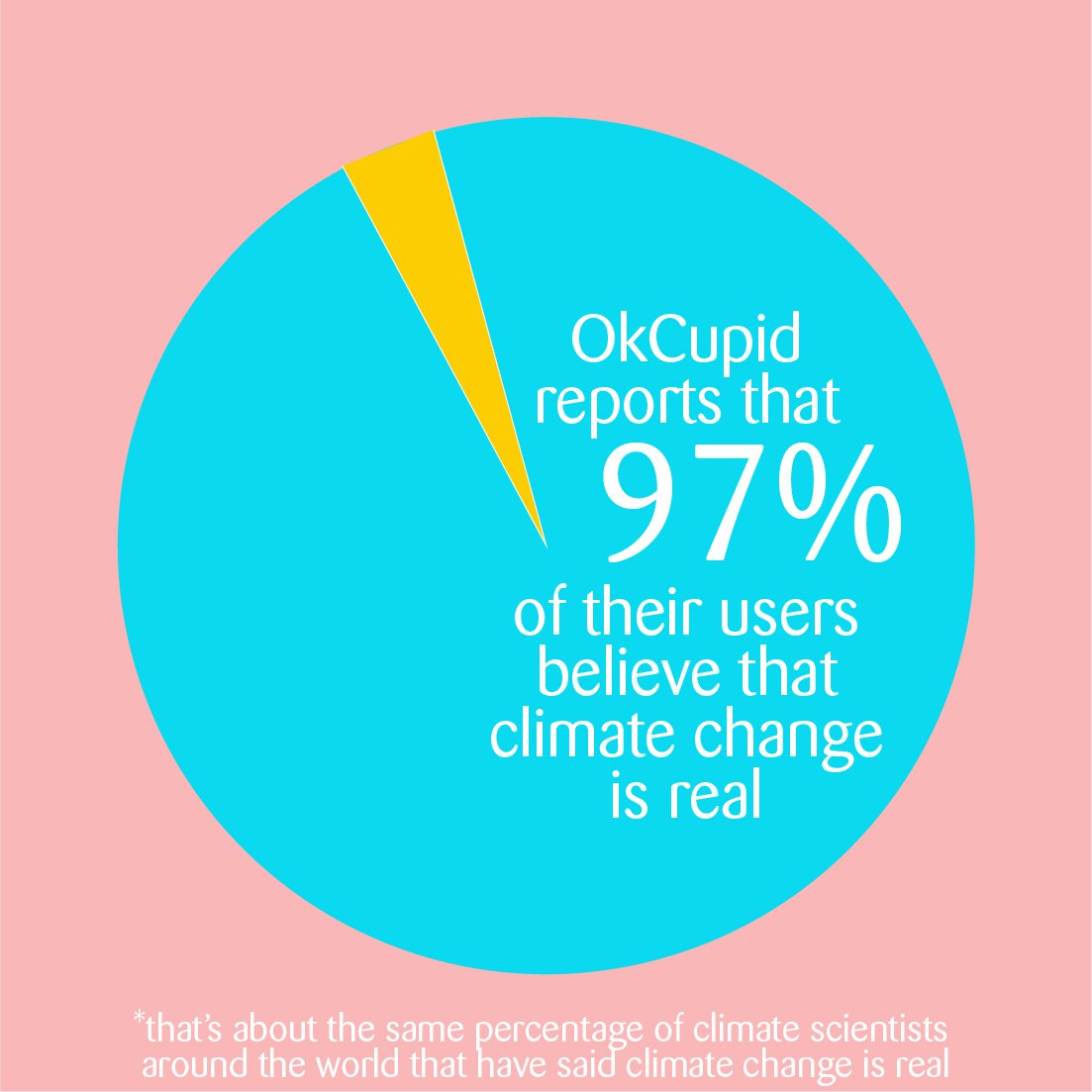
OkCupid reported that, in the last 2 years, they have seen a 240% increase in mentions of climate change on their dating profiles. In fact, 97% of the people on OkCupid agree with about the same percentage of climate scientists: climate change is real. From 2009 to 2014, OkCupid also saw a 138% jump of users ranking climate change as more important than the economy, fighting disease and even world peace!
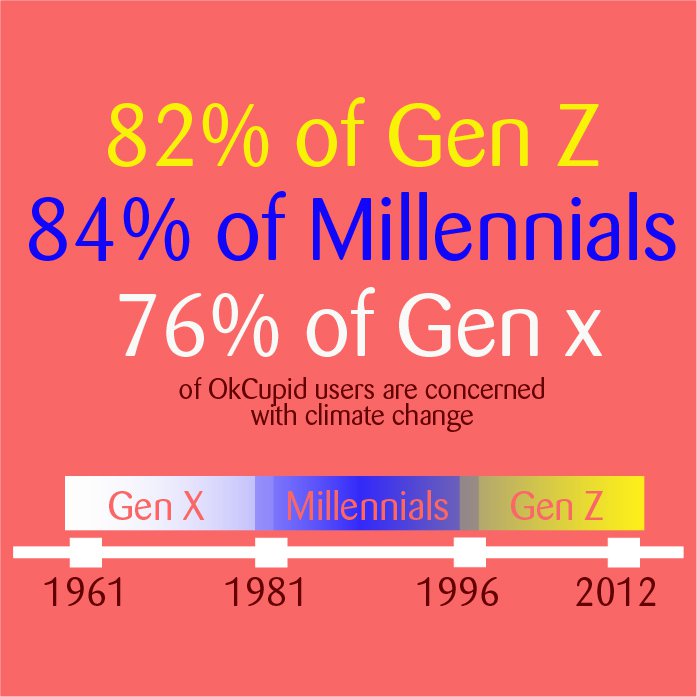
So, who are all these hot and worked up people?! Younger daters appear to be the most concerned with climate change. 82% of Generation Z, 84% of millennials, and 76% of Generation X are concerned about climate change. Members of these three generations account for folks born between 1961 and 2012. Interestingly every single decade from the 60’s to today has shown continued warming trends. You'd need to be over 40 years old to have experienced a year when the global average temperature was at or below the 20th-century average.
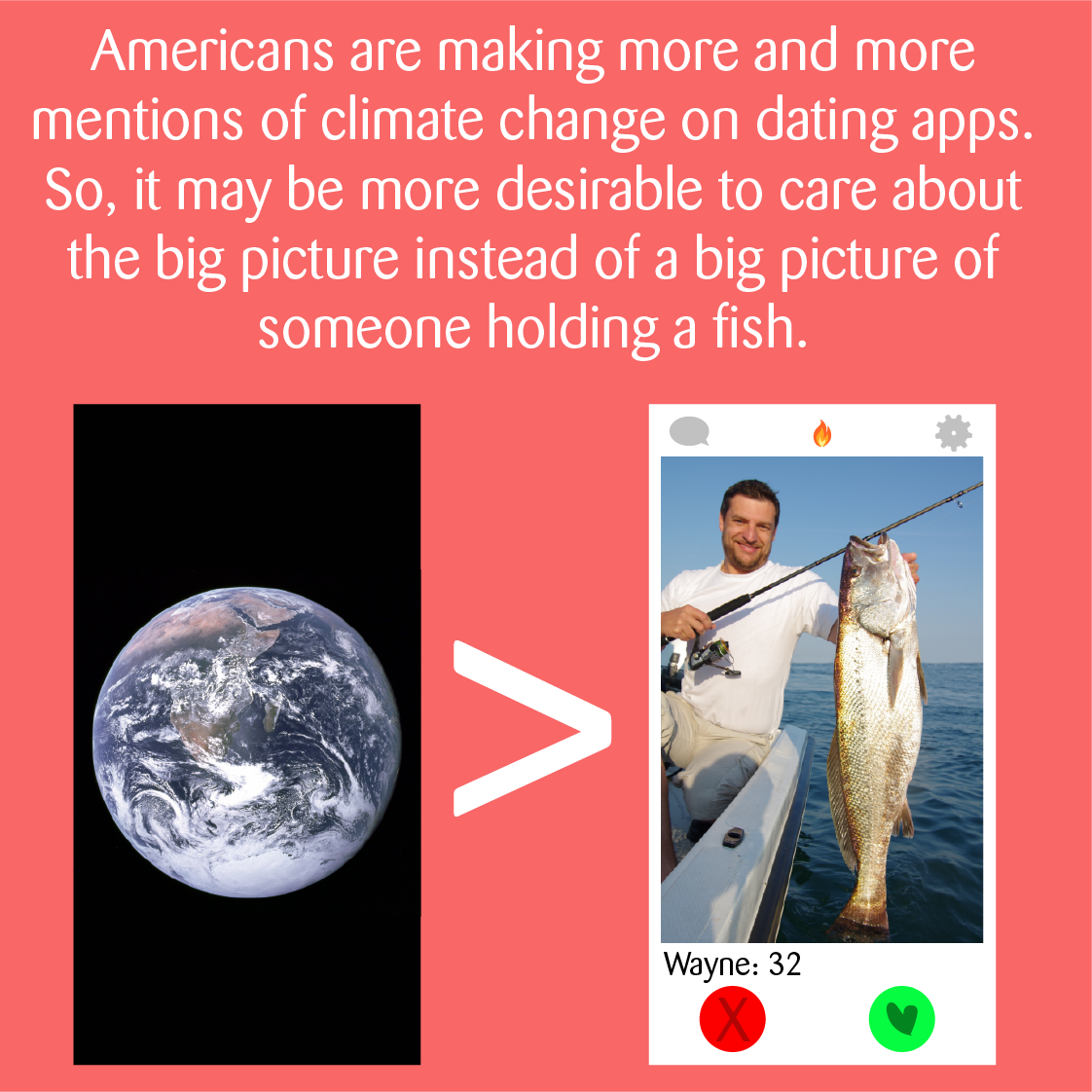
No wonder this is an important topic for individuals looking for love in all the online places. Also as more and more Americans become climate savvy on dating apps, it may also become more desirable to care about the big picture, instead of a big picture of someone holding a fish.
Need more Valentine's Day Science?
Like many other topics in science, this too leads to many more questions. For example, once these folks match up on their dating apps, will they be monogamous forever? That's another big question that scientists have looked into as well. Check out our article that asks if genetics plays a role in monogamy or not. Scientists studied the totally separate evolutions of five different species to trace them back to common ancestor. From there they started to explore if this social trait is genetic or not.
Another big Valentine's Day science question we've dug into is: Why do we fall in love?
Psychologists have said that it takes about 90 seconds to four minutes for us to decide if we dig someone or not. A lot of these first impression decisions are not always based on the things someone is saying to you, but in the basic motions and sounds of the other person. Nearly 55% of our crushes develop based on body language and about 38% on the tone and speed of their voice. In fact, some studies even show that it's only about 7% what they’re saying and the rest is all external and physical reasons.
Our brains do some remarkable things when we fall in love. For more on this, check out the three stages of love. Lust, attraction, and attachment are stages one's brain goes through as they fall in love. So much of our romantic history can be traced back to still-unknown variables in the human brain, one of biggest mysteries left to be fully studied by science.
Valentine's Day only comes once a year, but we all know that true love can be celebrated any day. Regardless, these are some fun topics to dig into with your main squeeze, new crush, or someone who swiped right on your profile. Remember folks, nothing's more romantic than a candlelight dinner with a special someone discussing how much there is left to know about ourselves and each other. From all of us to all of you, Happy Valentine's Day, everyone!
Credit: All images via Getty Images


